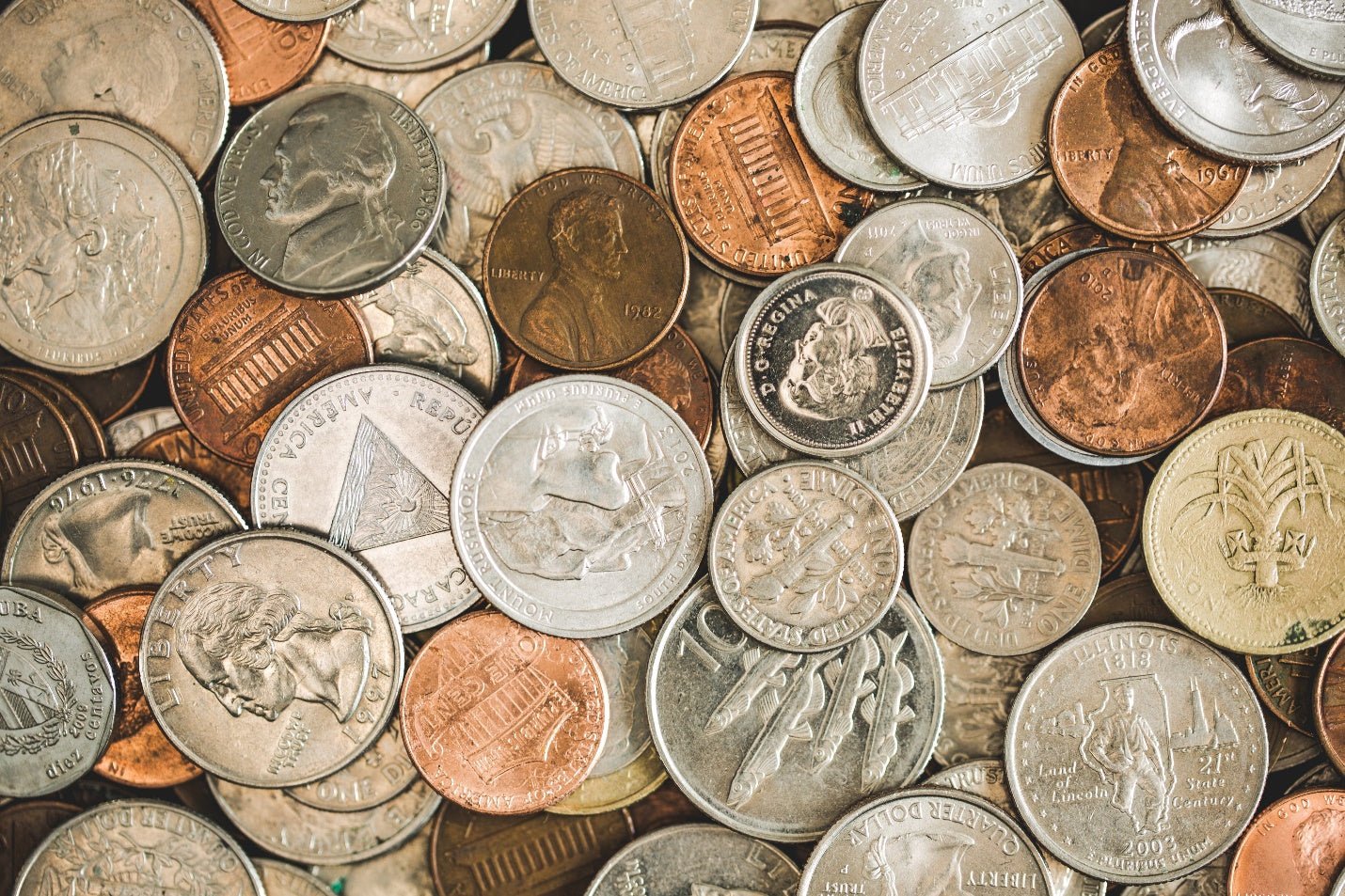CALL 1-800-746-0902 FOR A FREE EVALUATION

Properly storing and maintaining gold and silver coins help you make sure they retain their value. If you’ve inherited a collection or recently purchased older coins, you may be tempted to clean off the tarnish right away. Before you do, you should learn whether or not it’s necessary to clean them, how to clean them without causing any damage, and how to store them to prevent damage in the first place.
Gold is a remarkably durable metal, and it doesn’t corrode or tarnish, but it can be damaged if it’s stored with tarnished metal, and it should be stored in an airtight container. The biggest concern with gold is security and confidentiality. If it’s widely known that you store gold in your home, you can become a target for break-ins. Protect your gold with a safe and consider talking to your insurer about making sure it’s covered.
Silver on the other hand is more likely to tarnish, and you should take care to store it correctly. The last thing you want when you go to sell coins in Toronto is to find out that damage has decreased the value of your collection.
Silver objects tarnish as a result of exposure to sunlight and chemicals in the air like hydrogen sulfide. To prevent your silver from becoming tarnished, store the coins in plastic tubes and a container to keep them away from sunlight. Make sure they’re placed in a cool, dry area. When you remove them, handle them with white cotton gloves to protect the metal from oils on your hands.
Before you start, determine whether or not you should clean your coin collection at all. In many cases, it’s not recommended to clean most precious metals, as there are many stories of collectors devaluing their own collections by damaging them. For the most part, you should leave circulated gold and silver coins alone. While it’s fairly common to clean gold jewellery, when it comes to coins, it’s more likely to reduce value from the piece than increase it.
If you do feel like you want to clean your precious metal coins, these are the steps you need to take to make sure you don’t devalue or damage them. If you want to brighten up your personal collection of silver coins or clean up circulation coins (which can be very dirty and carry plenty of germs), here’s what you need to do.

Credit: jcomp Via Freepik
First, you’ll need the right tools for the job. You will need:
If you’re trying to remove tarnish from cutlery or other silver items, you can also line containers with aluminum foil and use baking soda rather than dish detergent.
1) Wash your hands thoroughly to remove the oils and dirt that can damage precious metals.
2) Fold your towel over your working surface so that it will catch coins that you might drop, protecting them from dents and other damage.
3) Fill the container with soapy water. Make sure the container does not have any hard surfaces that can scratch or damage your coins permanently. Use a tiny amount of dish detergent.
4) Fill the second container with a rinse bath to wash the soap off. Distilled water is your best option, as tap water can have minerals and chemicals in it.
5) Gently rub both sides of the coin once it’s submerged in the soap bath. Pay attention to how dirt or grime sticks to the surface. Move it away from the center of the coin, toward the edge. Make sure you clean one coin at a time to avoid them scratching or denting each other.
6) Rinse under running warm water and rub off soap residue. Remember that the key to protecting your coins is gentleness. If you feel grit, avoid the temptation to rub it in, as that will scratch the surface. Instead, move the coin rapidly through the water to dislodge any remaining dirt.
7) Rinse again in distilled water to remove the chlorine and other substances found in tap water. Only touch the edge at this point.
8) Let coins dry on the towel before returning them to storage.
If you have collectible coins, never clean them. In some collectibles, the tarnish or “toning” can actually make the coins more valuable. Natural toning is a result of oxidation that takes years to occur. If you’re storing them properly, you don’t need to worry about it, but toning will occur at some point.
When the toning is attractive, it can even improve the coin’s value. It provides a unique aspect that can attract the eyes of experienced collectors. However, the appeal is personal, and toning may mean that it has a smaller market. The more collectors it’s exposed to, the better your chances of finding the right buyer who will appreciate a coin for what it is. Take this into consideration when you think about where to sell silver in Toronto. Muzeum has built up an extensive database of collectors around the globe who are always looking to add bullion and numismatic gold and silver to their collections.
E-Mail Muzeum To Schedule Your Free EvaluationProperly storing gold and silver is the best way to preserve its value. However, if you feel the need to clean your collection, take every precaution to ensure that you do not cause more damage than you’re fixing. In most cases, we strongly recommend leaving your gold and silver coins as they are – to ensure no value is lost from cleaning marks or abrasion marks on the coin. Feel free to clean jewellery and polish tea settings!
Comments will be approved before showing up.